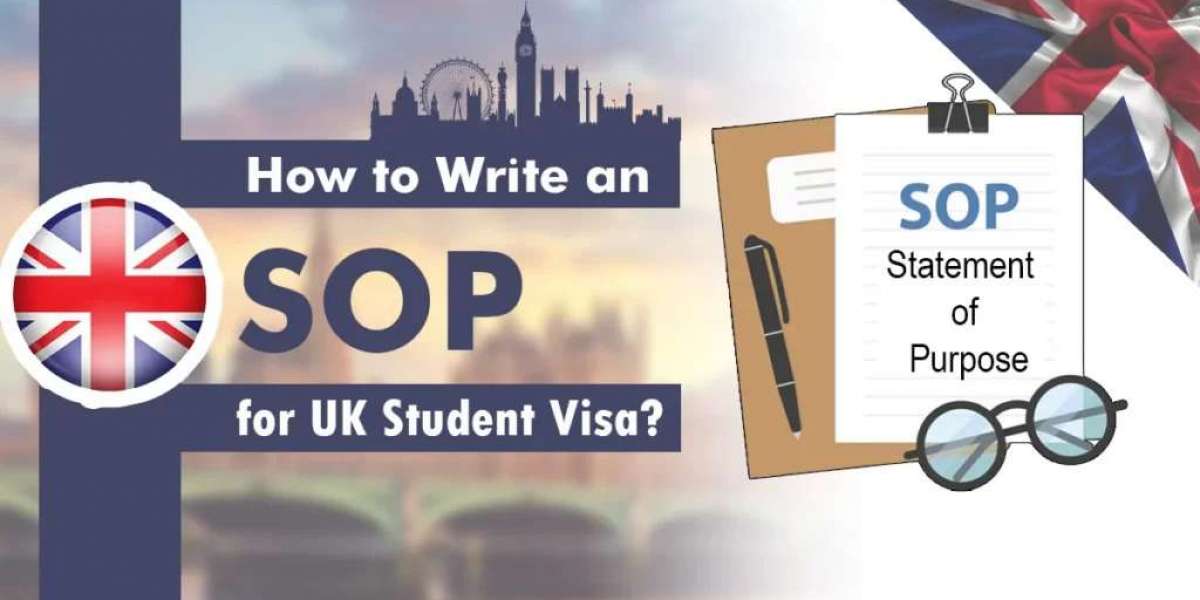The Statement of Purpose (SOP) is a pivotal document in your SOP for UK student visa application. It acts as a bridge connecting your academic journey and aspirations to a specific program in the UK. A well-written SOP showcases your passion, potential, and suitability for the program, significantly impacting your visa success.
This guide equips you with the knowledge and strategies to craft a compelling SOP that will impress visa officers and pave the way for your UK study adventure.
Understanding the Importance of an SOP
The SOP is your opportunity to tell your unique academic story. It goes beyond grades and transcripts, revealing your motivations, goals, and how this specific program aligns with your future aspirations. Visa officers use the SOP to assess your genuine interest in studying in the UK and your commitment to returning to your home country upon completion of your studies.
Steps for Crafting a Winning SOP:
1. Research and Planning:
Program Deep Dive: Before embarking on your writing journey, thoroughly research the program you're applying to. Understand its curriculum, faculty expertise, research areas, and career paths it opens.
Know Yourself: Introspect on your academic journey. What sparked your interest in this field? Highlight relevant coursework, projects, internships, or research experiences.
Goals and Aspirations: Clearly articulate your career goals. How will this program equip you to achieve them?
2. Structure and Organization:
Introduction: Briefly introduce yourself, your educational background, and the program you're applying for.
Academic Journey: Highlight relevant academic achievements, coursework, research projects, or skills related to the program. Showcase your intellectual curiosity and passion for the field.
Motivations for Choosing This Program: Explain why you've chosen this specific program at this particular university. Demonstrate your awareness of the program's strengths and how they align with your goals.
Future Aspirations: Clearly outline your career aspirations after completing the program. How will the program's knowledge and skills help you contribute to your field?
Conclusion: Summarize your key points and reiterate your commitment to the program and your study in the UK. Mention your enthusiasm for contributing to the university community and future plans upon graduation (returning home, potentially seeking graduate employment in the UK with the appropriate visa).
3. Strategies for a Compelling SOP:
Clarity and Concision: Maintain a clear, concise writing style. Avoid fluff and focus on conveying essential information.
Show, Don't Tell: Don't simply state your achievements; illustrate them with specific examples, anecdotes, or projects.
Passion and Enthusiasm: Let your passion for the chosen field shine through. Show genuine excitement about pursuing this program.
Quantify Whenever Possible: Use numbers and data whenever relevant to quantify your achievements, like grades or project outcomes.
Proofread and Edit: Ensure your SOP is free of grammatical errors and typos. Ask someone to proofread it for clarity and flow.
4. Additional Tips:
Tailoring is Key: Don't submit a generic SOP. Tailor your document to each program you apply to, highlighting specific aspects that resonate with that program's focus.
Highlight Uniqueness: While academics are important, showcase your well-roundedness. Mention relevant skills, extracurricular activities, or volunteer experiences that demonstrate your potential.
Be Honest and Authentic: Your SOP is a personal document. Be honest about your motivations and aspirations.
Word Count: Adhere to the word count specified in the application guidelines. Typically, an SOP for a UK student visa applied.
Beyond the SOP: Strengthening Your Application
While the SOP is integral, consider these additional elements for a strong visa application:
Strong Academic Transcripts: Demonstrate a consistent record of academic excellence.
Standardized Test Scores: Good scores on tests like the IELTS or TOEFL prove your English language proficiency.
Financial Documentation: Provide evidence of sufficient funds to support your studies and living expenses in the UK.
Letter of Recommendation (LOR): Seek strong LORs from professors familiar with your academic strengths and potential.
Conclusion:
By investing time and effort into crafting a compelling SOP, you significantly strengthen your UK student visa application. Remember, your SOP is your voice, your opportunity to convince visa officers of your genuine interest in studying in the UK and your potential to succeed. By following these steps and strategies, you can craft a document that will open the door to a rewarding academic journey in the UK. Additionally, consulting with UK student visa consultants can provide you with expert advice and enhance your application process.
FAQ’s
1. What's the SOP all about?
Think of your SOP as a bridge connecting your academic journey and aspirations to a specific UK program. It highlights your motivations, potential, and why you're the perfect fit.
2. What content should I include in SOP?
Focus on showcasing your academic achievements, research experiences, and relevant skills. Explain why this program ignites your passion and how it aligns with your future career goals. Don't forget to mention your plans to return home (unless seeking UK graduate work).
3. How long should it be?
Aim for clarity and conciseness. Most applications require an SOP between 400-700 words.
4. How can I make it stand out?
Craft a captivating introduction that grabs the reader's attention. Use storytelling and showcase your passion. Quantify your achievements with numbers when possible, and remember, authenticity goes a long way!
5. What are some common mistakes in SOP?
Avoid generic SOPs. Tailor each one to the program, highlighting specific connections. Proofread meticulously to avoid typos and grammatical errors. Finally, be realistic about your future goals.








